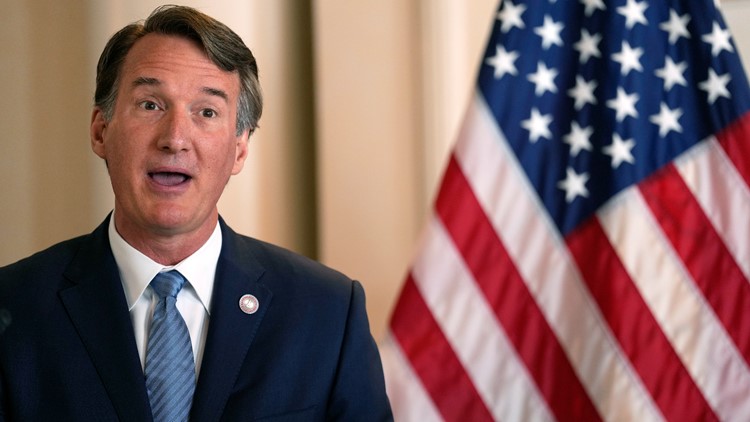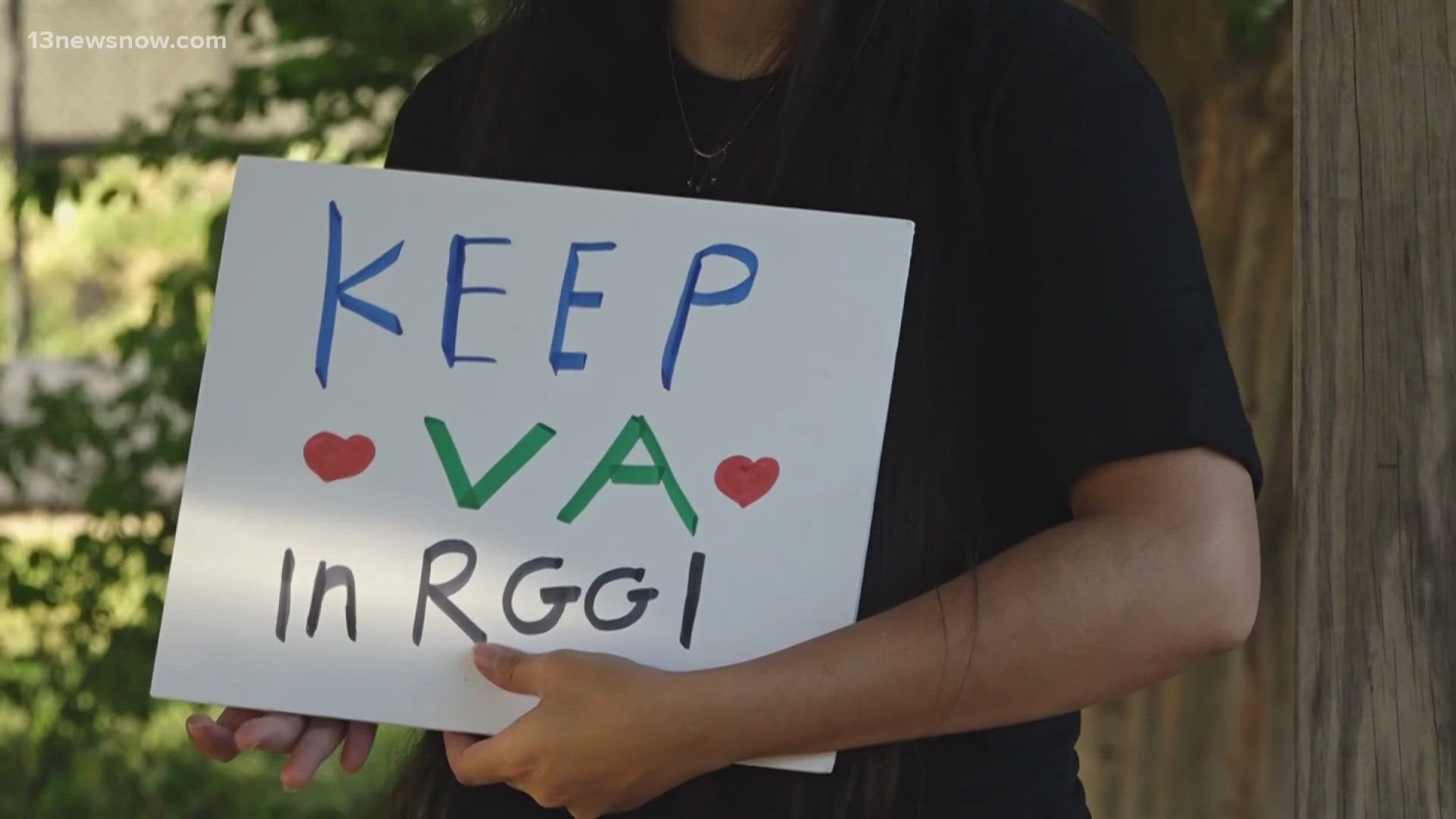NORFOLK, Va. — Several environmental groups are suing Virginia Gov. Glenn Youngkin's administration for the state's pending withdrawal from the Regional Greenhouse Gas Initiative (RGGI) via regulatory repeal.
The lawsuit was filed Monday by the Southern Environmental Law Center (SELC) on behalf of Appalachian Voices, the Association of Energy Conservation Professionals, Faith Alliance for Climate Solutions, and Virginia Interfaith Power and Light, less than a month after the groups stated their intent to take legal action in the Fairfax County Circuit Court.
RELATED: Environmental groups to take legal action against Youngkin administration for RGGI withdrawal
The withdrawal was done by repealing the regulation the state used to participate in the auction-based carbon emissions reduction program, which was enacted after the Clean Energy and Community Flood Preparedness Act became law in 2020.
After a months-long process that included thousands of public comments, the Air Pollution Control Board voted to approve the repeal in June. But many environmental groups and Democratic lawmakers have slammed the move as illegal, arguing the 2020 law requires Virginia to participate in RGGI.
Under the repeal, Virginia will leave RGGI on Dec. 31, 2023, which is the end of the program's control period that started on Jan. 1, 2021.
RGGI puts a cap on carbon dioxide emissions from power plants that will get stricter over time across 11 states: Connecticut, Delaware, Maine, Maryland, Massachusetts, New Hampshire, New Jersey, New York, Rhode Island, Vermont, and Virginia.
Power companies have to acquire allowances for every short ton of carbon dioxide they emit, which are distributed at quarterly actions. During Virginia's participation, the proceeds went to energy-efficiency programs for low-income Virginians and the Community Flood Preparedness Fund (CFPF), but the withdrawal leaves their funding sources in question.
The goal with RGGI is to incentivize power companies to move toward clean energy and reduce emissions, but Youngkin has argued the program doesn't serve its purpose while acting as a tax on Virginians. He believes withdrawal via regulatory action as opposed to action by lawmakers was legal.
RELATED: 'The words are very clear' | Youngkin argues he can withdraw Virginia from RGGI under current law
According to a news release from the SELC, the lawsuit filed Monday argues that the Air Pollution Control Board, the Virginia Department of Environmental Quality, and its director lack the authority to end the state’s participation in the program. In that same release, spokespeople for the groups touted the benefits of Virginia's participation in RGGI.
"Without our participation in RGGI, Virginians will be exposed to increased greenhouse gas emissions and more severe climate impacts with little or no support for their mitigation from the state,” Rev. Dr. Faith Harris, executive director at Virginia Interfaith Power & Light, wrote. “The weatherization and flood preparedness funds created due to our participation in RGGI were sound and practical solutions to stabilize Virginia's economy in the face of rising energy costs, sea levels, temperatures, and severe weather conditions. RGGI is working for Virginia, and Virginians know it."
13News Now reached out to Youngkin's office for comment on the lawsuit, which shared a statement from Virginia Secretary of Natural and Historic Resources Travis Voyles:
"RGGI remains a regressive tax which does not do anything to incentivize the reduction of emissions in Virginia. Our State Air Pollution Control Board has acted and believes that Virginia is not required to be in RGGI and that the citizens of Virginia should not be subjected to this unnecessary tax. The Office of the Attorney General confirmed the State Air Pollution Control Board has the legal authority to take action on the regulatory proposal using the full regulatory process—and the Board voted to do just that—furthering Virginians access to a reliable, affordable, clean, and growing supply of power. Virginians will see a lower energy bill in due time because we are withdrawing from RGGI through a regulatory process."



